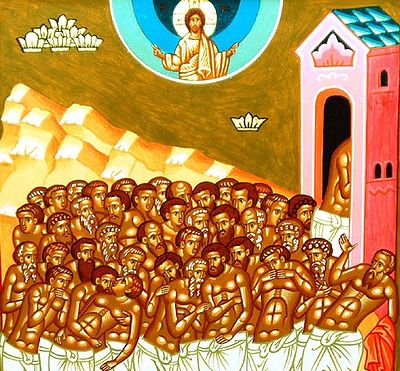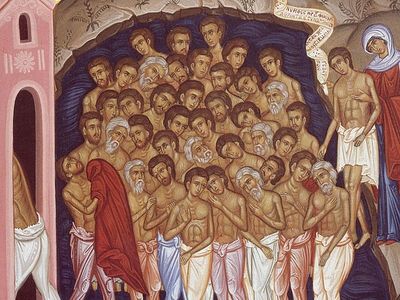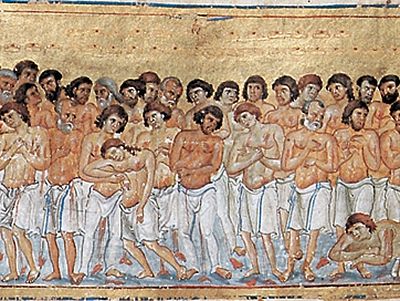 Photo: Pravoslavie.ru
Photo: Pravoslavie.ru
CATECHESIS 62: On Our Imitating the Lord’s Sufferings
By St. Theodore the Studite
[Migne adds: On the Forty Martyrs [March 9th].
But it seems to have been given after the day itself.]
Brethren and fathers, how good it has become for us the separation from the monastery here! For why should our liberty be subject to the judgement of another’s conscience? (1 Cor. 10:29). And why do we maltreat ourselves still for what is of no use? We managed as far as it was possible and the moment allowed; but now, because when the moment summoned they did not choose persecution on behalf of Christ, as certain others, it is necessary to listen to the Prophet when he says, Come out from among them and be separated, (Isa 52:11) says the Lord. If others act otherwise over these matters, they will render an account to the Lord on the day of judgement; for it seems to me that to be brought under their power is equivalent of being indifferent towards the heretics. You see that the same distinction withdraws us from the world and drives us to trouble, to distress, to hunger, to persecution, to prison, to death; but in all these we must be supremely victorious through the God who loved us, (Rom. 8:37) when, whenever he sees a soul thirsting for Him, gives it force to be able to endure sufferings on His behalf. And to this the Forty Martyrs, whose memorial we have just celebrated, bear witness with the others; for we cannot say that they possessed a different nature to the one we have. But since they loved God with a true heart, they were empowered in their weakness to throw down the invisible enemy by the flesh, and to accomplish a struggle of such a quality and greatness that all Christians praise it in song. And blessed is one who has been granted to share in the sufferings of Christ, (Cf. 1 Pet. 4:13) even to some extent at least: the persecuted, because He too was persecuted; the arrested, because He too was arrested; the reviled, because He too was reviled; the scourged, because He too was scourged; the imprisoned, because He too was imprisoned; see too why it is written, If we have died with Him, we shall also live with Him; if we endure, we shall also reign with Him; if we deny, He too will deny us; if we are faithless, He remains faithful; He is not able to deny Himself (2 Tim. 2:11-13). Do you see the promises and the threats, of what sort and how great they are? For the rest then, brethren, let us strive, let us struggle by the grace of Christ not to shame those things that have been previously mentioned: the banishments, the imprisonments, the scourgings. We may not all have been imprisoned, nor all scourged; but nevertheless the fellowship of life itself becomes a fellowship of sufferings, for if one limb suffers, all the limbs suffer with it; if one limb is glorified, all the limbs rejoice with it (1 Cor. 12:26). And would that we were even more one body and one spirit, as we have been called in one hope of our calling (Eph. 4:4), having Christ as the head, to become well-pleasing to God, to gain the kingdom of heaven, in Christ Jesus our Lord, to whom be glory and might with the Father and the Holy Spirit, now and always and to the ages of ages. Amen.




